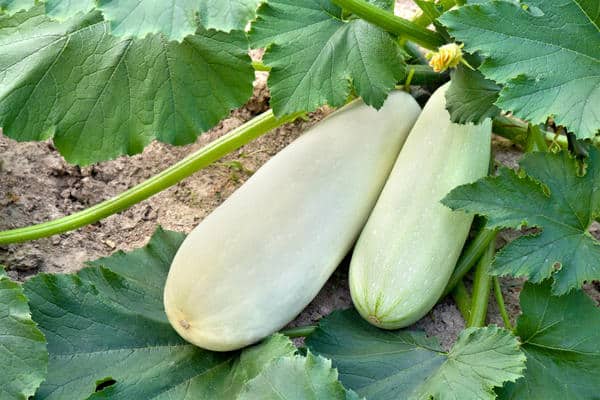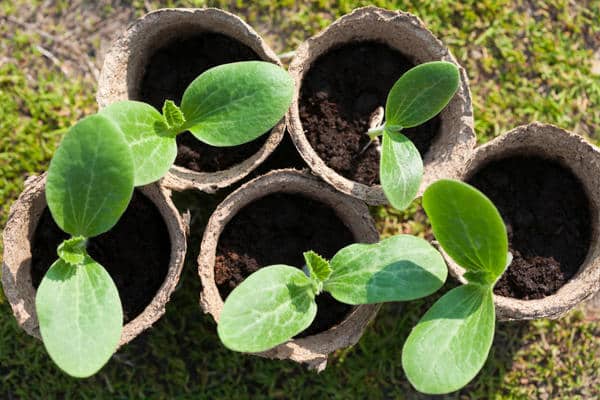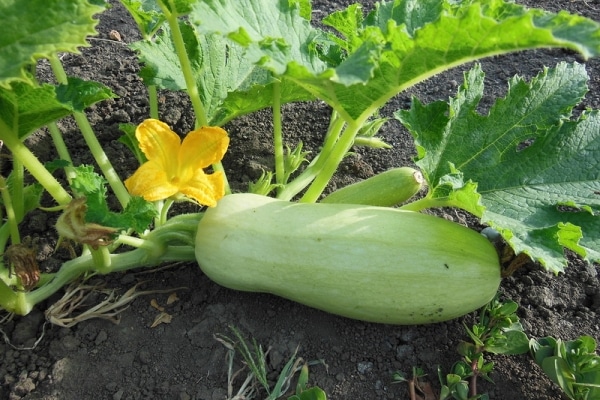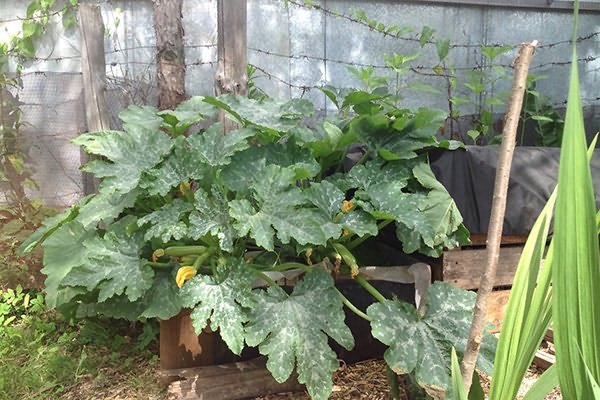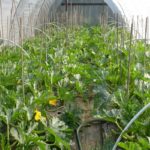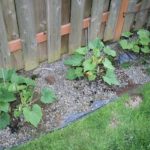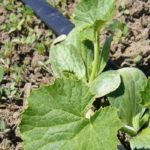Zucchini is considered an unpretentious crop that is quite easy to grow at home. However, despite this, sometimes problems arise when growing this vegetable. Therefore, some are interested in why zucchini may not grow. Often the growth rate of bushes is affected by temperature, since they instantly react to its changes. For example, at high temperatures, zucchini bushes grow, but fruits do not set.
8 reasons why zucchini doesn’t grow or doesn’t bear fruit well
Inexperienced vegetable growers do not know what to do when zucchini grows poorly. To understand this, you need to familiarize yourself with the main reasons for impaired growth of squash bushes. There are eight main reasons why zucchini grows slowly.
1. Insects disappeared
Often fruits do not appear due to the lack of insects that should pollinate the flowers. Without timely pollination, ovaries will not appear on the bushes and zucchini will not begin to bear fruit.
What to do if the zucchini fruits do not grow in the garden? In this case, you will have to pollinate the flowers yourself. To do this, you will have to pick several male flowers with stamens from the bushes. It is with their help that female flowers will be pollinated. However, before this you should learn to distinguish female flowers from male ones. There are two recommendations that will help you do this:
- Male flowers appear much earlier than female ones.
- Female flowers have a seal at the bottom, while male flowers are located on a thin stalk.
It is better to pollinate one female flower with two male ones, so that pollination is sure to be successful. If the process is successfully completed, fruits will appear on the bushes within 5–7 days. If they are not there, you will have to repeat the procedure.
Some people do not want to pollinate plants themselves and attract insects to the flowers. To do this, they spray the bushes with syrup made from honey. During spraying, the leaves on the plants are spread apart so that more honey liquid gets onto the flowers.
2. Something is missing
Another reason why zucchini grows, but no fruit sets, is an insufficient amount of fertilizer in the soil.To avoid problems with a lack of fertilizers, you should regularly add organic and mineral fertilizers to the soil.
Feeding is carried out at least three times per season:
- The first is carried out before flowering, a week after the appearance of the first shoots. Organic fertilizers and preparations such as Effecton or Agricol are added to the soil.
- The second occurs at the moment of flowering of plants. In addition to organic fertilizers, mineral fertilizers are also added to the soil.
- The last time fertilizer is added to the site is during the period of fruit formation. The area is treated with drugs such as Buton and Agricol.
3. Bad seeds
A common reason why zucchini fruit does not bear fruit is poor-quality seed material. If the seeds for planting are of poor quality or defective, then you will not be able to get a good harvest. Therefore, before planting, you will have to learn how to choose crop seeds to plant.
When choosing seeds, pay attention to their packaging.
High-quality seeds are sold in dense packages made of durable paper. There should be no damage or poor-quality images. Also, on high-quality packaging they place information about the seed manufacturer and leave contact information, with the help of which any gardener can contact the manufacturer personally and ask why their zucchini does not grow. If there is none of this on the package, it is better to refrain from purchasing such seeds.
4. Acidic soil
Increased acidity levels are another reason why zucchini grows slowly. Therefore, before planting this vegetable, the acidity level of the soil in the area is determined.To do this, use ordinary litmus paper, which is sold in special stores. Soil samples are taken from different parts of the site to accurately determine the acidity of the soil. Then the soil is infused in water for about two hours, after which litmus paper is placed in it. If it changes color, the soil is not suitable for zucchini.
There are several effective methods for reducing soil acidity. To stabilize acidity, slaked lime, flour, ground chalk, wood or peat ash are added to the soil. Only in this case will the planted zucchini grow normally.
5. Wrong place
Often, due to the wrong location for planting zucchini, it is not possible to obtain a high-quality harvest. The yield of a vegetable deteriorates if it is grown for several years in the same place or if cucumbers, pumpkins, or tomatoes grew on the site before it.
What to do if the zucchini’s productivity disappears and they bear little fruit? To ensure that the vegetable yield does not decrease, you need to choose the right place for growing. It is recommended to select areas where crops suitable for zucchini have previously been grown. These include carrots, beets, garlic, beans and eggplants. If crop rotation is not observed, the development of squash bushes will slow down significantly. This happens due to the fact that the seeds grow in an area with depleted soil, which does not have enough nutritional components for normal plant growth.
6. Lowland high groundwater level
Elevated groundwater levels are often the reason why zucchini plants do not grow during cultivation. Due to the high groundwater level, fruiting of vegetables is reduced several times.Therefore, we can say with confidence that too much water is also very bad for zucchini.
To somehow combat high humidity, high beds are made. When creating high ridges, a box is made from wooden blocks into which soil is poured for planting. Then organic matter is added to the soil. fertilizers for squash the bushes grew better. If there is a large amount of groundwater on the site, high beds are required, since otherwise the bushes will not grow.
7. Lack of heat and light
Sometimes zucchini does not grow, and only small ovaries form on the bushes. This happens when plants don't get enough sunlight. Lack of lighting occurs when vegetables are planted under trees that shade the seedlings. Zucchini is considered a light-loving plant and therefore does not grow well in shaded areas.
For planting, it is recommended to choose a place without trees or other plants that can shade the squash bushes.
8. Bad neighbors
A common reason why zucchini fruits do not grow is unsuitable neighbors. Zucchini is planted near any plants and they will grow. However, their yield varies depending on where they are planted. For example, when planting zucchini near a pumpkin, the amount of harvest will be significantly reduced. Therefore, before growing, you should familiarize yourself with compatible neighbors. Squash bushes grow well near tomatoes, beets, corn and onions.
Advice from an experienced gardener
Before planting squash, it is recommended that you familiarize yourself with the advice of familiar gardeners who grow these plants:
- Correct landing. In order for vegetables to have high yields, they should be planted correctly in the ground.In open soils, zucchini are planted spaciously at a distance of at least 90 cm from each other.
- Watering. To increase productivity, experienced gardeners recommend regularly watering the bushes. At the same time, at least thirty liters of water are consumed per square meter of plot with zucchini.
- Feeding. Regular fertilization accelerates fruit formation and increases yield. When feeding the bushes, organic fertilizers and nitroammophoska are added to the soil to increase the number of fruits.
Conclusion
All gardeners who are interested in growing vegetable crops in the garden face problems with the growth of zucchini. It is recommended to familiarize yourself with the reasons for poor growth of squash seedlings in order to avoid this problem.

